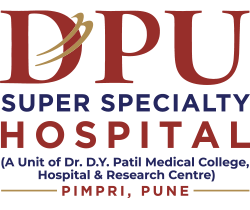What to Expect at Cardiology Consultation

Cardiovascular consultation is a vital part of the medical treatment of your health. The patients get to discuss their cardiac issues and complaints and get a brief idea of what is wrong with their cardiovascular system and how to treat it so as to lead a much healthier lifestyle. It also helps in better understanding the treatment methods and surgery procedure, pre and post-operative preparations, risks, and complications of the surgery.
What Happens at a Cardiology Consultation?
A cardiologist or his/her assistant might ask some basic questions related to your health. Then, A physical exam follows based on which investigations may be advised, either on an OPD basis or you might be admitted. You should always be prepared for it. You should keep the following points in mind:
- Always carry your previous medical records and show those to the assigned physician for better consultation. This will avoid repetitive diagnosis and tests.
- Always discuss your family surgical history.
- Discuss your lifestyle, eating habits, addictions (if any) and what a day in your life looks like. Your profession may have effects on your heart.
These are the following tests that are usually conducted:
1. Electrocardiogram (ECG or EKG)
This is a method where electrodes are placed on your upper body and legs to capture electrical signals of your heart. This test determines the functioning of the heart, rate of heartbeat, and irregularities in rhythm. It also identifies if the heart is enlarged or damaged.
2. Echocardiography
For this test, sound waves are used to create images of the heart. The images determine the characteristics of the heart, like size, the strength of the heart muscles, the presence of diseases, and heart valve malfunctions. The images can be seen on the large screen monitor, allowing the doctors and the patient to view them during the examination.
3. Stress Testing
This is a diagnostic test that shows the functioning of the heart under heavy stress and its ability to withstand it adequately. Here, you are usually asked to perform treadmill or cycling or any heart-straining activity, during which the electrocardiogram and blood pressure changes. This test is conducted to detect any reason behind the chest pain, shortness of breath, or fluttering in the chest.
4. Cardiac Angiography
It is for patients who have shown signs of coronary artery disease. In this test, X-ray images are used to examine the blood vessels or chambers of the heart for plaque deposition. In usual circumstances, a catheter is inserted into the blood vessel in the upper thigh or arm and pushed towards the heart. A contrast dye is then injected into the blood to make the arteries visible and when the dye flows through the arteries, X-ray images are captured.
Based on the above tests, your cardiologist determines the best possible action for you as the next step. They might also ask to change your daily lifestyles, such as losing weight, changing your biological clock, alcoholism, cholesterol-reducing mechanisms, and more.
What usually happens is people normally decide to show a cardiologist after consulting a general practitioner. Be sure to choose someone with some good experience in the field of cardiology and a proven track record.
Tips To Choose the Right Cardiologist for You
Here are a few tips on how to know which cardiologist will be the best for you.
- Know the best cardiologist through referrals: There are so many cardiologists in Pune. This method will narrow down your search. Since you’ll be showing your general practitioner first, sometimes he or she may recommend you to a good cardiologist with their number/address to visit.
- Get it done by experience: You need to take time to know about the doctors’ experience and expertise before you choose the one for you. Talk to your family physician about the same as they can help you find the best cardiologist for your heart conditions.
- Make sure that the hospital is good: This is a huge factor when it comes to medical facilities. The success of your treatment and quick recovery time depends a lot on the healthcare facility you are counting on. Top-rated hospitals like DPU Hospital, Pimpri, Pune are staffed by highly qualified cardiologists and state-of-the-art equipment. At such places, your optimal care is ensured.
Most patients contemplate seeing a specialist when they don't feel great however may put it off, or they might hang tight for a yearly physical checkup with their family care specialist to pose inquiries about any actual torments or side effects. We don't recommend that. You should always get yourself checked regularly. It helps you with an early diagnosis which offers greater chances of successful treatment. And also note that you should never lie to your doctor. Be frank, be clear, and be honest as it will help them understand your condition in the best way.
It is also important to choose a doctor whose communication style suits them. If the cardiologist recommends a treatment that seems risky or expensive, in that case, get a second opinion if needed.
What Should I Know Before Seeing a Cardiologist?
These are a few things you should know before seeing a cardiologist:
- Make sure you schedule a consultation whenever your regular physician asks you to see a cardiologist.
- If you have any sort of heart pain or any of the symptoms related to heart diseases, do not ignore it.
- If you have a family history of heart diseases, chances are that you might also have a few of them. Make sure you have a clear idea about this.
- If you have high cholesterol or fatty liver, diabetes, or if you are a chain smoker, make sure to get these things under control. Leave smoking as quickly as you can.
- If you are pregnant, you might have a hidden risk factor for heart disease called Preeclampsia. Consult a cardiologist if advised by your obstetrician.
Questions You Can Ask When You Meet a Cardiologist?
This is a very important part of meeting your cardiologist. Here we mention a few questions to ask your cardiologist.
- Q1. Will my heart health be affected by my family history?
- Q2. How do I know whether my blood pressure is normal or not?
- Q3. How do I know my cholesterol level and does it affect my heart?
- Q4. Are these symptoms occurring because of my age, weight, or gender?
- Q5. What are the symptoms of a heart attack?
- Q6. Are my eating habits the reason for my symptoms?
- Q7. Are my exercise habits the reason for my symptoms?
- Q8. Are my heart complications dependent on the level of stress/anxiety?
- Q9. What are my treatment choices for the side effects I am having?
- Q10. What happens if my symptoms keep on persisting?
A few specialists will go over way for information with you, while others will elude you to dietitians, advisors, other consultations, and different experts they work with. Make certain to converse with your cardiologist about your lifestyle.
Don't be scared or ashamed of asking questions. Having questions is necessary to know what you’ll be going through. You have every right to know the answers to your questions. Make sure you utilize the time perfectly.
The Bottomline
Based on the reason for your cardiologist consultation arrangement, going to a specialist might require a scope of various clinical trials. Albeit these tests might appear to be overwhelming, remember your doctor is there to assist you with working on your heart's well-being. The more symptomatic data is accessible to your cardiologist, the quicker they can help you.
Incorporate an individual well-being history along with your family. Accumulate any new experimental outcomes and a rundown of drugs you are taking. Note any side effects you have been encountering. Accumulate a rundown of inquiries you need to pose to your physician. Here, we have provided you with a checklist:
- Medical records of you and your family
- A note of your symptoms
- A detailed compiled list of your medications and history
Ready to Schedule Your Cardiologist Appointment
If you are already concerned about your cardiovascular health, it’s the best time to schedule your consultation with a reputable cardiologist at our DPU Hospital, Pimpri, Pune. Remember that your heart and overall health are important to them. They are aware of the importance of your appointment with them and they will do their best to clear all your related doubts.
Visit heart hospital in Pimpri Chinchwad to explore more about our cardiology department. Give us a call at 020 27805100 to request your appointment.








